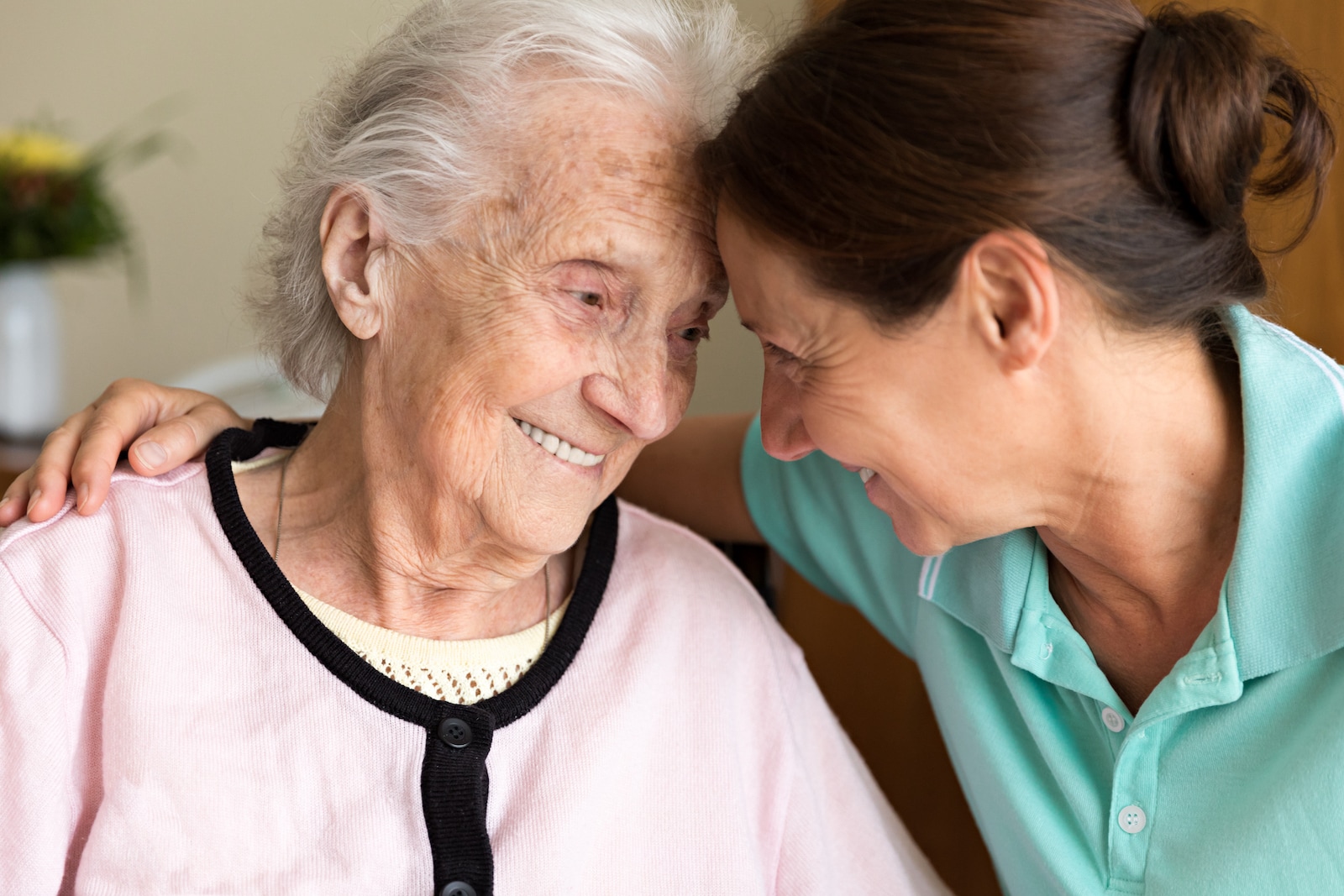With cases of dementia projected to triple by 2050, it’s more important than ever for senior care workers to understand the condition and to acquire memory care skills.
Recently, trainings and certifications for workers dealing with dementia patients have become more widely available among independent care professionals, facility staff and to non-professional caregivers alike. In recent years, more states have begun requiring dementia training among caregivers, making these courses vital throughout the industry.
“There’s a phenomenon going on right now where we’re seeing incidents of Alzheimer’s and dementia continuing to tick up,” says Brian Browne, founder of Dementia Care Education, a program that has trained over 2,500 caregivers across the world in memory care. “We know we should be preparing our workforce to deal with the tsunami that’s coming on us.”
Here’s what you need to know about the kinds of memory care and certifications that exist, what individual caregivers will learn during these training sessions, who benefits from them and more.
What is memory care training?
Memory care training provides skills for caregivers who are working with patients suffering from dementia, which is an umbrella term that refers to a decline in memory, language and other faculties that interferes with a person’s capacity to live their life normally.
Many organizations offer trainings and certifications in memory care, including the Alzheimer’s Association, Dementia Care Education, CARES and more. A common baseline certification is the Certified Dementia Practitioner training from the National Council of Certified Dementia Practitioners, which involves taking an eight-hour seminar conducted by approved instructors.
“There are some programs out there that don’t have the credentials and don’t have the robust materials, and so, it takes some research.”
— Brian Browne, founder of Dementia Care Education
Anyone from professional carers in facilities to non-professional family home caregivers can take the trainings and become certified. However, choosing the right program — or variety of programs — can take some digging.
“You have to do due diligence,” explains Browne. “There are some programs out there that don’t have the credentials and don’t have the robust materials, and so, it takes some research. Look for word of mouth and for other companies vouching for them.”
How do memory care trainings work?
Memory care training is typically offered virtually, with each program varying in cost and time commitment. For example, the Alzheimer’s Association EssentiALZ trainings lasts three hours and are self-paced and cost $60 while the Dementia Care Education program takes eight hours with continuing education requirements to maintain certification and costs $199.
During these trainings, caregivers learn how to recognize and manage dementia symptoms while deepening their empathy toward patients. Through immersive learning, users develop tools for helping seniors work through frustration and memory loss, giving them a chance to feel more productive and happy, explains Sharon Shields-Rios, vice-president of health care at J&M Family Management, which owns several senior care facilities throughout Texas, Oklahoma, Illinois and Wisconsin. They provide multiple types of memory care certification trainings for their employees — including AGEucate, CARES and CDP (Certified Dementia Practitioner) certifications.
The AGEucate Training Institute, for instance, offers sessions in which students wear virtual reality glasses in order to see the world through a patient’s eyes. Users experience the same yellowing of vision and disorientation that frequently affects dementia patients. Other programs offer aromatherapy or sensory training while others are more traditional online courses with worksheets.
“I’ve seen people get angry and walk away during these trainings,” explains Shields-Rios. “I’ve seen tears, because it’s hard to process what our loved ones or patients are going through.”
But the education will result in tools that you’ll have at your disposal for helping older adults with dementia feel meaningfully engaged throughout the day, she notes. “We are empowering them so that they can tailor their care.”
By completing memory care training, you will absolutely come to the table with an advantage.
— Emily Shubeck, senior associate director of quality care at Alzheimer’s Association
Why get certified in memory care?
In addition to arming caregivers with more skills to care for dementia patients, certification sends the message that workers are taking their profession to the next level. According to the American Health Care Association, more than one in five assisted living providers only serve adults with dementia, thereby broadening opportunities for people with training.
Emily Shubeck, senior associate director of quality care at Alzheimer’s Association, says that a caregiver completing this training “will absolutely come to the table with an advantage.”
Many facilities also require and therefore pay for this training for their employees. And if you’re ever seeking employment in a care facility, having a certificate will give you a leg up in the hiring and skills process.
“We offer training for our employees usually because they can’t afford it, but of course it’s more beneficial for us if they’re already a CDP and already have this training,” says Shields-Rios. “If they already understand what it takes to care for someone with memory care issues, that’s icing on the cake.”
In more extreme situations, Browne asserts that the certification can actually mean life or death.
For instance, a caregiver who isn’t specifically trained in memory loss care might not know that an older adult with dementia or Alzheimer’s might have difficulty swallowing, says Browne. “They force wrong-sized foods or fluids down in a manner that’s conducive for aspiration or choking,” he notes. “We’ve seen people suffer from aspiration pneumonia because of a lack of training.”
Where is certification required?
There is currently no national requirement for memory care certification. To varying degrees, some states and individual employers require licensure. According to the most recent data from 2019, only 23 states required dementia training for all staff of nursing homes, while 19 states required dementia training for adult day staff, and 13 states required the training for licensed home health aides.
Washington state has historically been a leader in dementia care training legislation, requiring all care professionals who come to contact with dementia patients to undergo rigorous dementia training. Some states, such as Ohio and Michigan, only require this training for carers operating in specialized dementia units.
However, the landscape is continually evolving. Massachusetts and Minnesota, for example, recently passed bills that became, making licensure a requirement among care professionals who come into contact with dementia patients. In March of 2022, Kentucky set minimum training requirements for “direct care staff members” at facilities that “provide services to individuals who exhibit symptoms of Alzheimer’s disease or other dementias.”
“The biggest barriers right now aren’t the cost or accessibility of these trainings, and we already see that the quality of life and outcome for people who get dementia memory care is better than the rest of the population,” notes Browne. “The barrier to training is the fact that we have some states that see the data and want to get ahead of it. Those states are putting in legislation that says anybody who is working with anyone with dementia needs to go through training and certification. But other states are not touching it.”
Still, regardless of your state’s individual laws, you and your clients could benefit tremendously from an advanced skill set. As Shubeck notes, completing memory care training will ensure you’re better equipped to support seniors who have dementia with their daily activities and to address their unique challenges through a lens of person-centered care.


